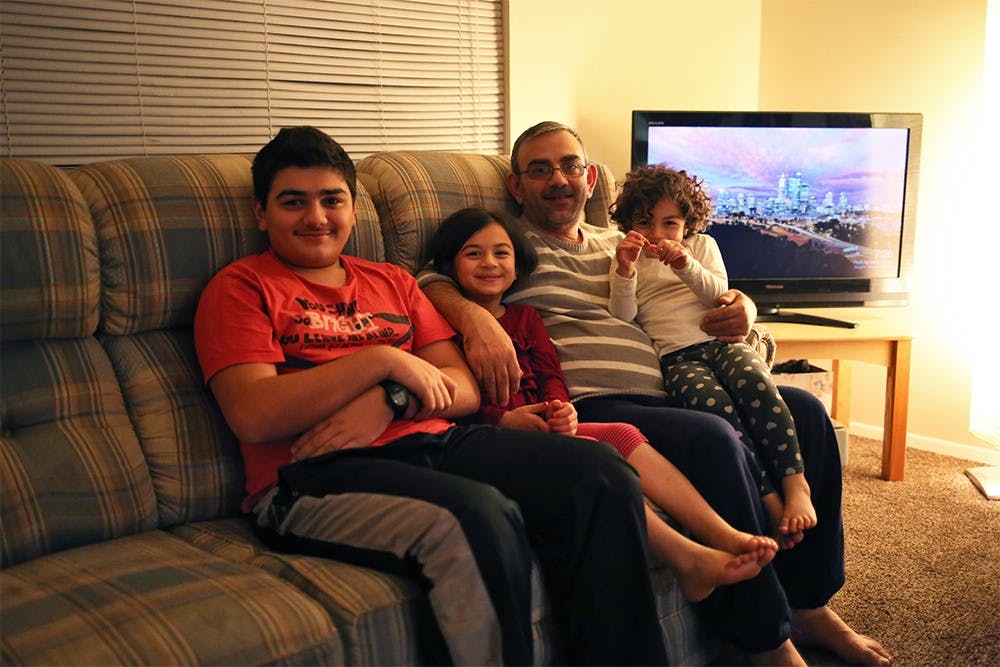The Batmans are one of eight families of Syrian refugees to have settled in Indianapolis since civil war ripped through the country in 2011. The TV in their small apartment has no signal, and the family finds all its news on Facebook. So when Rakan, 13, was asked at school if he supported ISIS, he didn’t know why.
An IDS reporter explained the announcement Monday evening. It was the first time the Batman family had heard of it, and they fell silent.
Marwan grabbed at a cell phone, hoping to call the governor and explain the Syrian situation.
“Here in Indiana, there are Syrian families. Families,” Marwan, Rakan’s father, said, waving a scarred hand toward his four children. “We’re running from war, from ISIS.”
Pence’s decision stems from last Friday’s terrorist attacks in Paris, which left at least 129 people dead after a series of explosions and shootings. ISIS has claimed responsibility for the attacks, and politicians and the public have grown suspicious of possible ISIS agents hiding among masses of refugees.
“In the wake of the horrific attacks in Paris, effective immediately, I am directing all state agencies to suspend the resettlement of additional Syrian refugees in the state of Indiana, pending assurance from the federal government that proper security measures have been achieved,” Gov. Pence said in a statement.
By Monday evening, about half of the country’s governors had announced similar plans.
Alabama started the trend Sunday night, when Gov. Robert J. Bentley vowed not to “place the citizens of Alabama in harm’s way” by letting Syrian refugees enter the state.
“Frankly, they’re fleeing the very same people they’re being accused of being joined with, ISIS, so it’s really a disturbing thing for us here at Exodus,” said Cole Varga, Exodus Refugee Immigration director of operations. Exodus Refugee has helped resettle at least 25 Syrian refugees during the past year.
To Indianapolis’s community of Syrians, the decisions seemed inevitable. As Lina al-Midani, who immigrated from Syria more than 25 years ago, watched Paris descend into terror last Friday, she typed out a text message.
“Go back home,” she wrote to more than 20 Syrian families around the city, telling them to stay inside and out of public. “People are angry. I don’t know what’s going to happen.”
Al-Midani, who now works in conjunction with Exodus to resettle Syrians, called the announcements “a tragedy.” She has friends who stayed inside their homes all weekend.
“People are scared, I don’t blame them,” she said. “They believe we are killers.”
It’s unclear whether a governor has the legal authority to block refugees from his or her state. The Refugee Act of 1980, which reformed the way refugees are resettled within the United States, grants no specific authority to sitting governors. And President Obama, who pledged to let 10,000 refugees into the country over the next year, condemned the shut-outs in a speech Monday morning.
Since 2013, the United Nations High Commissioner for Refugees has submitted the files of more than 22,000 Syrian refugees to the United States. Less than 2,000 have been allowed in the country.
A ninth Syrian family was scheduled to fly in from Jordan on Tuesday.
Al-Midani hasn’t heard if they got on the plane. She said she thinks they’re probably stuck in Jordan.






